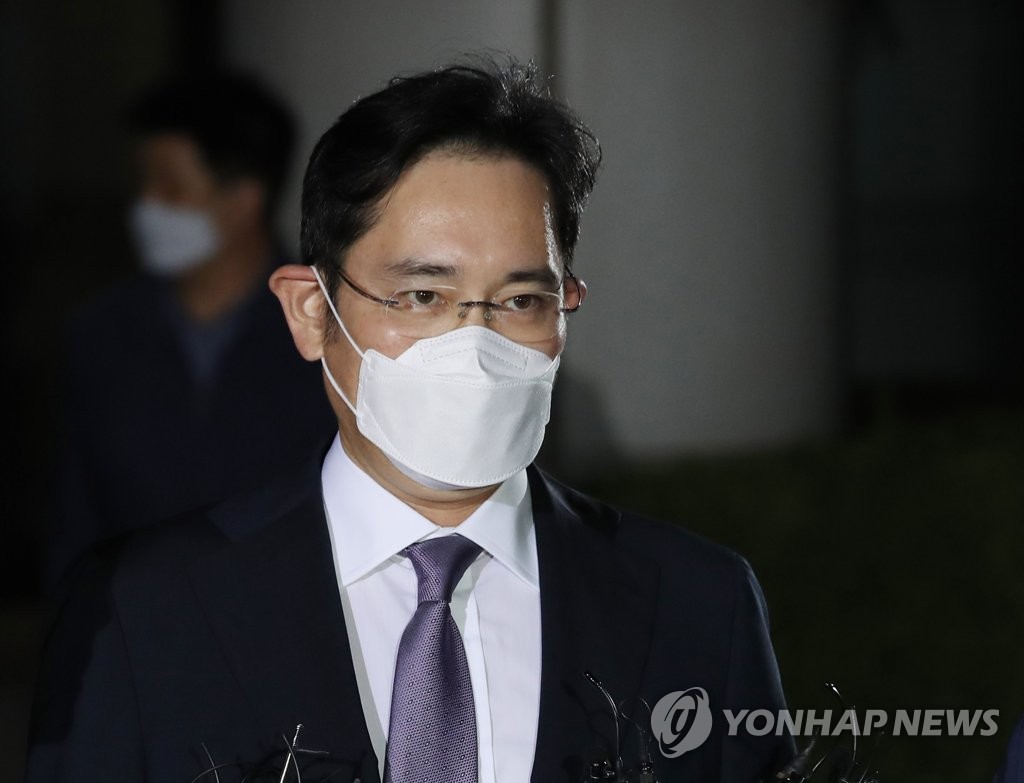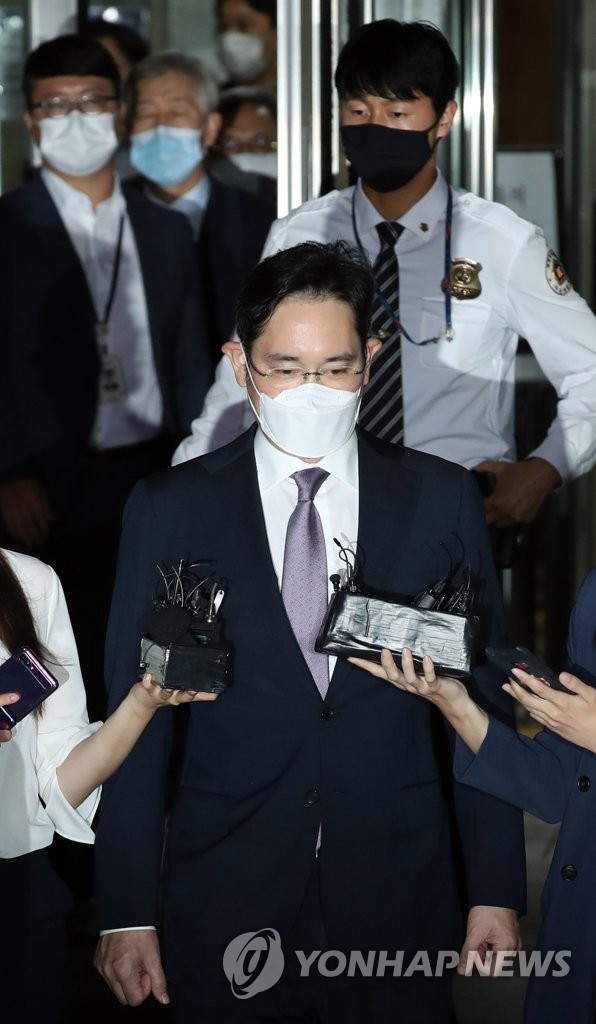- California Assembly OKs highest minimum wage in nation
- S. Korea unveils first graphic cigarette warnings
- US joins with South Korea, Japan in bid to deter North Korea
- LPGA golfer Chun In-gee finally back in action
- S. Korea won’t be top seed in final World Cup qualification round
- US men’s soccer misses 2nd straight Olympics
- US back on track in qualifying with 4-0 win over Guatemala
- High-intensity workout injuries spawn cottage industry
- CDC expands range of Zika mosquitoes into parts of Northeast
- Who knew? ‘The Walking Dead’ is helping families connect
Court rejects arrest warrant for Samsung heir Lee in succession probe
A court in Seoul early Tuesday refused to issue an arrest warrant for Samsung Group’s de facto leader, Lee Jae-yong, who are under investigation over succession-related allegations.
The Seoul Central District Court turned down the prosecution’s request to put Lee, vice chairman of Samsung Electronics, behind bars, citing that there is not sufficient probable cause for his arrest.
Two other Samsung executives, Choi Gee-sung and Kim Jong-joong, from the group’s now-disbanded control tower, the Future Strategy Office, also avoided arrest.
“There was insufficient explanation on the need to arrest the defendants against the principle of trial without detention,” Judge Won Jung-sook said.
“The basic facts (of the case) have been all explained. And prosecutors seem to have already secured considerable amount of evidence through its investigation,” she said. “In light of the importance of the case, whether the defendants are responsible, and if so, how much they are, should be determined through sufficient legal battles and court hearings.”
The prosecution expressed frustration at the decision.
“Given the seriousness of the case and a trove of evidence, the court’s decision to reject (the arrest warrants) is a shame,” it said in a statement.
“Regardless of the result, we will do our best to continue the investigation according to law and principle going forward,” it continued.
Lee arrived at the court at around 10 a.m. on Monday to attend a hearing on the validity of his arrest, which lasted for early nine hours.
At around 2:40 a.m. Tuesday, he emerged out of the Seoul Detention Center located in Uiwang, south of Seoul, where he had awaited the court’s decision.
Asked about how he felt about the decision, he didn’t offer any answer, except for a short greeting to reporters, and left the scene in a black sedan.
Lee is under probe in connection with the controversial merger of two Samsung affiliates in 2015, a key process widely believed to help him take over control of the group from his ailing father, Lee Kun-hee.
The three are accused of engaging in unfair trading, stock price manipulation and violation of laws on external audits.


Lee Jae-yong, vice chairman of Samsung Electronics, leaves the Seoul Central District Court in southern Seoul on June 8, 2020, after attending a hearing on the prosecution’s arrest warrant request against him. (Yonhap)
Investigators suspect the group’s top management of having been deeply involved in what they believe was a systemic effort to help the father-to-son transition of Samsung’s leadership. Lee’s father has been bedridden since he suffered a heart attack in 2014.
They, in particular, believe that Lee was involved in a scheme to inflate the value of Cheil Industries Inc. and lower that of Samsung C&T prior to the merger in 2015.
Lee and his aides were also suspected of inflating the value of Samsung Bioepis, a joint venture between Samsung Biologics and the U.S.-based Biogen Inc., by approximately 4.5 trillion won (US$3.64 billion).
Samsung Biologics is a subsidiary of Cheil Industries, of which Lee was the largest shareholder, with a stake of 23.2 percent.
The probe began in November 2018 when the Securities and Futures Commission under the Financial Services Commission filed a complaint against Samsung Biologics over suspicions of accounting fraud. Prosecutors have since expanded the probe with suspicions that the alleged accounting fraud might have been aimed to help Lee assume control.
Lee and the two executives have denied the allegations.
Samsung has claimed that Lee was not briefed on, or ordered allegedly illegal transactions, including stock manipulation or accounting fraud.
Lee was imprisoned for about a year in 2017 for bribing a confidante of former President Park Geun-hye in return for her administration’s support for the 2015 merger.
He was released in February 2018 after his sentence was suspended by an appeals court. But the Supreme Court ordered a retrial last year revising the size of the bribes.
As part of efforts to soothe public anger over the conglomerate’s alleged misdeeds and enhance its public image, Lee made a rare public apology in May over the succession-related allegations. He vowed not to hand down his Samsung managerial rights to his children.
Early last week, Lee called for a public assessment, by an external panel, of the validity the prosecutors’ probe and a possible indictment.
The system for review of the prosecution service’s investigation by an external panel was introduced in 2018 to enhance neutrality and fairness of its probes into cases that are of great public interest.
With the court decision not to arrest Lee, a decision by the panel is expected to influence the prosecution’s move to indict him, although it is not legally-binding.
The Seoul Central District Prosecutors Office said it will internally discuss the request on Thursday.
Prosecutors, who had reportedly planned to wrap up the probe and indict Lee this month, are widely expected to request an arrest warrant again, by presenting stronger evidence for his arrest.











